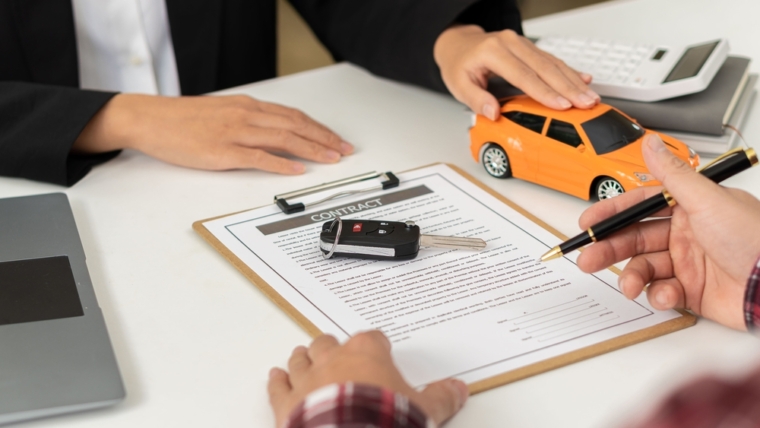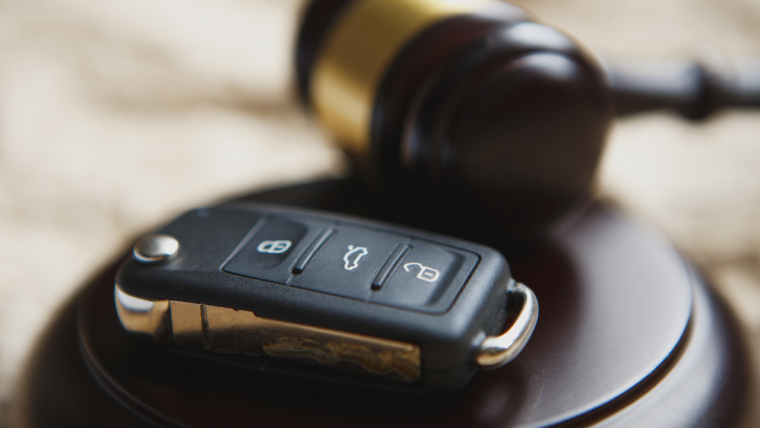Owning a car provides a sense of freedom and independence, but it also comes with significant financial responsibility. Monthly car payments can take a toll on your budget, and if you fall behind on payments, the consequences can be severe. Missing auto loan payments or defaulting on your loan puts you at risk of repossession, which is when the lender reclaims the vehicle due to nonpayment. But what exactly does the repossession process involve, and what options do you have if it happens to you? Understanding your rights and potential solutions can help you navigate this challenging situation and possibly regain control of your finances.
Repossession Laws
Depending on what state you live in, there may be various laws that apply to you in the case of repossession. For instance, in California, your car could be repossessed after just one late or missed loan payment. Even if you miss a payment on your car insurance, your vehicle has the potential to be repossessed.
What’s even worse is that the repossession company is not legally obligated to tell you they’re repossessing your vehicle, which could leave you totally blindsided. Some companies will offer you a grace period or may send you a letter letting you know that your vehicle is going to be repossessed, but legally, they don’t have to.
If you’re worried about your ability to make your car payments, be sure to look up your local repossession laws to see when you may be at risk.
Impact of a Repossession
Experiencing a car repossession can have significant financial repercussions aside from the loss of your vehicle. One major concern is the potential for a deficiency balance, which occurs when the proceeds from the sale of the repossessed car are insufficient to cover the remaining loan balance. Looking at Nerdwallets’ example, if you owe $9,000 on your loan and the car sells for $7,000 at auction, you’re still responsible for the $2,000 difference, plus any associated fees. This remaining debt is legally binding, and lenders may employ collection agencies to recover it, further impacting your financial standing.
Additionally, a repossession can severely damage your credit score, making it more challenging to secure loans or favorable interest rates in the future. The repossession record can remain on your credit report for up to seven years, signaling to potential lenders that you’ve struggled with debt repayment. To mitigate these effects, it’s crucial to communicate proactively with your lender at the first sign of financial difficulty. Many lenders are willing to discuss alternative payment arrangements or loan modifications to help you avoid repossession and its long-term consequences.
The Process
When you first purchase your car, you sign an agreement stating that you’re going to make your monthly payments on time, every time. Within this contract, your lender has the legal right to repossess your car if you aren’t able to hold up your end of the deal.
If your car does get repossessed, the lender could have your car towed wherever you are. You could be at home, at work, at your child’s school, or even on your private property. If you haven’t been given advanced notice of a repossession, you could simply walk outside and find an empty parking spot where your car used to be.
Once your car is repossessed, the lender then must send you a “notice of intent” or (NOI) in which they state what they plan on doing with the vehicle and if you have the option to redeem the repossession. The majority of the time the lender will try to sell it at auction. Repossession is simply your lender’s way of attempting to make back the money they originally loaned you, and often, selling the car at auction is the easiest and most efficient way to do that.
After the Repossession
So, your car has been repossessed. What can you do about it?
The first thing to do is contact your lender as soon as possible. They’ll be able to tell you why your car was repossessed since it might not always have to do with your car payment history. Once you’ve reached out, you’ll have a better idea of how to move forward.
If you did have your car repossessed because of missed payments, then it’s time to re-evaluate your financial situation. Can you afford to get another car in the first place? If so, can you also keep up with all the other expenses related to a car? Keep in mind that, on top of your regular car payment, you’re also going to need to pay for gas, maintenance, insurance, and more.
Be sure to also remember your rights if you’ve had your car repossessed. For instance, if you’ve left any personal belongings inside your vehicle when it was taken, your lender is legally required to give all of those items back to you, but they may charge a storage fee for holding them. Additionally, if a lender comes onto your property to repossess your car, they are not allowed to cause any type of damage. If you think something has happened to violate your rights, contact both your lender and a lawyer as soon as you can.
Getting Your Car Back
Finally, here’s the big question: how can you get your car back?
Perhaps the most obvious option is to pay off your loan in full. This can be a big ask for some people, and you may find yourself needing to borrow the money from a family member or friend. Just make sure to pay them back!
You also have the option to approach your lender and see if you can come up with a payment plan. This method might be able to help you catch up on the payment(s) you’ve missed and get back on track so you don’t miss any more payments moving forward. Depending on how much you’re behind, though, your lender may not agree to a payment plan.
While it’s not necessarily recommended, one way to prevent your car from going to auction is to file for bankruptcy. Filing for bankruptcy will temporarily prohibit your lender from putting your car up for auction, which could give you some much-needed extra time to pay your loan. Keep in mind, though, that bankruptcy can seriously impact your financial future and shouldn’t be taken lightly. If a repossessed car is the only thing making you consider filing, we’d recommend against it. However, in our next article we will go over when bankruptcy might be the best option financially and how to get an auto loan right after filing.
Get an Auto Loan, No Matter Your Credit
If you’ve gone through a repossession, you might be worried about your chances of getting approved for a new auto loan in the future. Having a history of repossessions or a low credit score can usually make it pretty tough to get approved. But at FA Financing, we’re happy to work with you and get you approved, no matter your history.We are proud to be one of the most trusted subprime auto lending specialists in the San Diego area, having helped thousands of people get an auto loan and get back on track. Our expansive network of lenders allows you to find exactly the company who can work with you, no matter what your financial history looks like. Our team is also able to look at your credit history and play up your strengths, making your case look more appealing to potential lenders. These days, it can be virtually impossible to get around without a car. We believe that a low credit score or a history of repossessions shouldn’t get in your way. Contact FA Financing today to see how we can help you get approved for an auto loan!
Editor’s Note: This post was originally published in September 2021 and has been updated for comprehensiveness.


